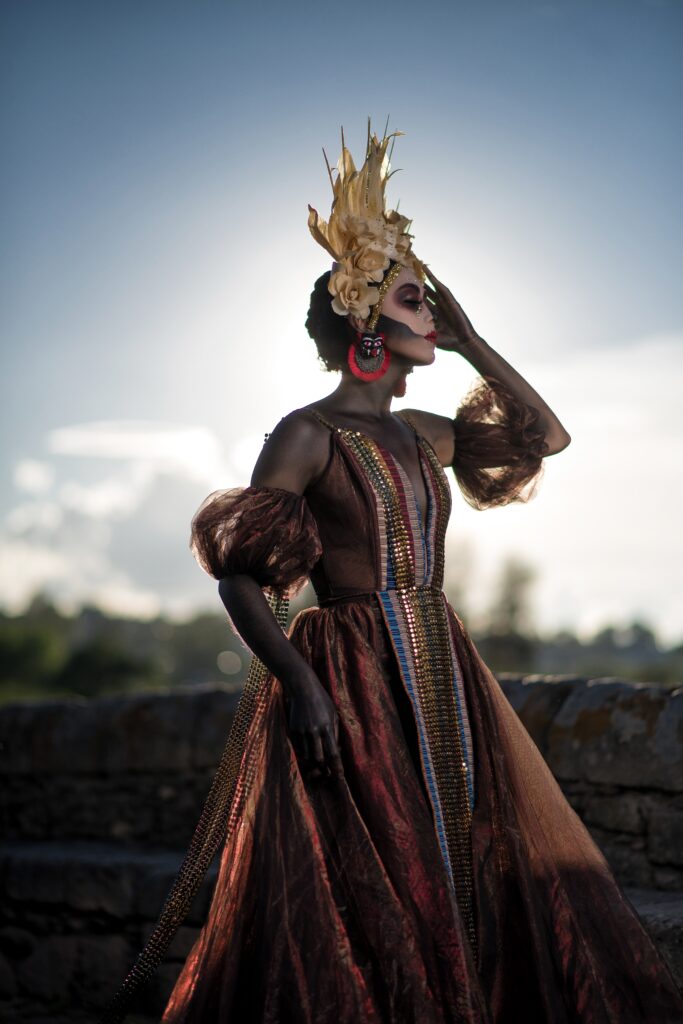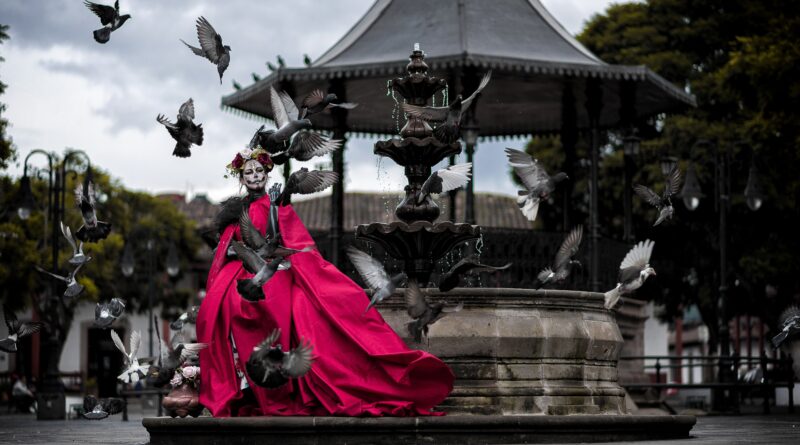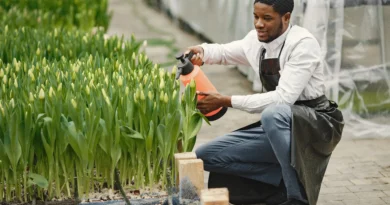Unveiling the Magic of Cultural Events: Exploring the Soul-Stirring Extravaganzas That Transcend Boundaries
Table of Contents
ToggleLorem ipsum dolor sit amet, consectetur adipiscing elit. Ut elit tellus, luctus nec ullamcorper mattis, pulvinar dapibus leo.
Are you ready to embark on a journey that will ignite your senses, transport you to distant lands, and immerse you in the rich tapestry of different cultures? Welcome to the magical world of cultural events! These soul-stirring extravaganzas are more than just gatherings; they are transformative experiences that transcend boundaries, uniting people through the universal language of art, music, dance, and food.
From the colorful Carnival in Rio de Janeiro to the enchanting Lantern Festival in China, cultural events celebrate the unique traditions and heritage of communities around the globe. These vibrant spectacles offer a glimpse into the heart and soul of a culture, providing an opportunity to appreciate its history, values, and creativity.
But the significance of cultural events extends far beyond entertainment. They serve as a catalyst for social cohesion, fostering understanding and respect among diverse groups of people. Moreover, these gatherings often contribute to the local economy, attracting tourists and generating revenue for businesses.
In this article, we will delve into the enchanting world of cultural events, exploring their profound impact and showcasing some of the most captivating celebrations from around the world. Get ready to be captivated by the magic that unfolds when different cultures converge in a symphony of sights, sounds, and flavors. Get ready to embrace the beauty of diversity!

The significance of cultural events
Cultural events hold immense significance in our world. They are not merely entertainment; they offer a deeper insight into the traditions and values of a community. These events provide a platform for artists, musicians, and performers to showcase their talents and express their cultural heritage. Through the vibrant display of art, music, dance, and food, cultural events preserve and celebrate the identity of a community, passing down traditions from one generation to another.
Cultural events also serve as a catalyst for social cohesion. They bring people from diverse backgrounds together, fostering understanding, respect, and appreciation for different cultures. By experiencing the customs, rituals, and artistic expressions of others, we gain a broader perspective on the world and develop a sense of unity among humanity.
Types of cultural events
The diversity of cultural events is astounding. From religious festivals and traditional ceremonies to music concerts and food fairs, there is an event to suit every taste and interest. Some events are deeply rooted in religious or historical significance, while others focus on contemporary art and performances. Regardless of the type, each cultural event offers a unique opportunity to delve into a specific culture and immerse oneself in its richness.
Religious festivals, such as Diwali in India or Ramadan in the Islamic world, showcase the spiritual practices and beliefs of a community. These events often feature colorful processions, elaborate rituals, and traditional music and dance performances. They provide a glimpse into the religious customs and traditions that shape the lives of millions of people.
On the other hand, music festivals like Coachella or Glastonbury attract music lovers from around the world. These events celebrate the diversity of music, bringing together artists from different genres and cultures. The mesmerizing performances create a sense of unity and belonging among music enthusiasts, transcending language and cultural barriers.
Food festivals and fairs celebrate the culinary heritage of a region or country. From street food markets to gourmet food and wine festivals, these events tantalize taste buds and offer a feast for the senses. They provide an opportunity to explore new flavors, learn about traditional cooking techniques, and interact with local producers and chefs.
Cultural events around the world

The world is teeming with cultural events that showcase the beauty and diversity of different cultures. Let’s take a virtual tour around the globe to explore some of the most captivating celebrations.
One of the most famous cultural events is the Carnival in Rio de Janeiro, Brazil. This extravaganza is a riot of color, music, and dance, attracting millions of people from all corners of the world. The samba parades, vibrant costumes, and infectious energy of the carnival create an electrifying atmosphere that is truly unforgettable.
In China, the Lantern Festival marks the end of the Lunar New Year celebrations. Thousands of lanterns, adorned with intricate designs and patterns, illuminate the night sky, creating a magical ambiance. The festival is also known for its traditional performances, including lion dances and acrobatic shows, which showcase the rich cultural heritage of the country.
Another remarkable cultural event is the Holi festival in India. Known as the Festival of Colors, Holi is a joyous celebration of the arrival of spring. People gather on the streets, throwing colored powders and water at each other, creating a vibrant kaleidoscope of hues. The festival embodies the spirit of unity and equality, as people of all ages, castes, and backgrounds come together to celebrate.
How cultural events transcend boundaries
Cultural events have the power to transcend physical and cultural boundaries, bringing people together in a shared experience. Through the universal language of art, music, and dance, these events create connections that go beyond language, nationality, and social status.
When we witness a traditional dance performance or listen to a captivating music piece from a different culture, we are transported to a different world. We might not understand the lyrics or the cultural context, but the emotions conveyed through the performance resonate with our own human experience. It is through these shared emotions that cultural events create bridges between cultures, fostering empathy, understanding, and appreciation for diversity.

The impact of cultural events on local communities
Cultural events have a profound impact on local communities, both socially and economically. These events not only preserve cultural heritage but also contribute to the development and revitalization of communities.
Socially, cultural events play a crucial role in strengthening the fabric of society. They provide a platform for artists and performers to showcase their talents, preserving traditional art forms that might otherwise fade away. By engaging with their cultural heritage, communities develop a sense of pride and identity, strengthening social bonds and fostering a sense of belonging.
Economically, cultural events can have a significant impact on local businesses and tourism. Festivals and events attract visitors from far and wide, boosting the local economy through increased tourism, hotel bookings, and spending on food, souvenirs, and transportation. Additionally, these events create employment opportunities for local artisans, performers, and vendors, boosting the overall economic growth of the community.
Cultural events and tourism
Cultural events have become a major draw for tourists seeking unique experiences and a deeper understanding of the places they visit. Travelers are increasingly looking for authentic cultural experiences, and attending a local festival or event is a perfect way to immerse oneself in the local culture.
Many destinations have recognized the potential of cultural events in attracting tourists and have invested in their development and promotion. From the flamenco festivals in Spain to the Oktoberfest in Germany, these events have become major tourist attractions, drawing visitors from all over the world. The influx of tourists not only boosts the local economy but also creates opportunities for cultural exchange and understanding.

Unforgettable cultural events to experience
While the world is filled with countless cultural events, here are a few that should be on every traveler’s bucket list:
1. The Rio Carnival in Brazil: Experience the energy and vibrancy of one of the world’s largest and most famous festivals. Dance to the rhythm of samba, admire the elaborate costumes, and soak in the infectious atmosphere of the carnival.
2. The Day of the Dead in Mexico: Celebrated on November 1st and 2nd, this festival honors the deceased. Witness the colorful parades, intricate altars, and traditional rituals that pay homage to loved ones who have passed away.
3. The Songkran Festival in Thailand: Celebrate the Thai New Year by participating in the world’s largest water fight. Join locals as they splash water on each other to wash away the past year’s misfortunes and welcome the new year with joy and laughter.
4. The Venice Carnival in Italy: Step back in time to the 18th century and immerse yourself in the grandeur and elegance of this historic carnival. Adorn a masquerade mask, stroll through the streets filled with revelers in elaborate costumes, and attend the famous masked balls.
Tips for attending cultural events
Attending a cultural event can be an enriching and memorable experience. Here are a few tips to make the most of your visit:
1. Do your research: Learn about the significance and history of the event before attending. This will help you appreciate and understand the cultural context better.
2. Respect local customs: Be mindful of the cultural norms and traditions of the event. Dress appropriately, follow any etiquette guidelines, and show respect for the performers and participants.
3. Immerse yourself: Don’t be a passive observer; actively engage with the event. Try local food, join in the dances or rituals, and interact with locals to gain a deeper understanding of the culture.
4. Capture memories responsibly: Take photos and videos to capture the magic of the event, but be mindful of cultural sensitivities and privacy concerns. Always ask for permission before taking someone’s picture.
5. Support local artisans and vendors: Purchase souvenirs or food from local vendors to support the local economy and contribute to the sustainability of the event.
Conclusion: Celebrating the power of cultural events

Cultural events are more than just gatherings; they are transformative experiences that connect us on a deeper level. Through art, music, dance, and food, these events celebrate the diversity and richness of different cultures, fostering understanding, empathy, and appreciation for our shared humanity.
Whether it’s a Carnival in Rio de Janeiro, a Lantern Festival in China, or a Holi celebration in India, attending a cultural event is an opportunity to embark on a journey of discovery and embrace the beauty of diversity. So, open your heart and mind to the magic that unfolds when different cultures converge in a symphony of sights, sounds, and flavors. Let these soul-stirring extravaganzas transport you to distant lands and leave an indelible mark on your soul.




